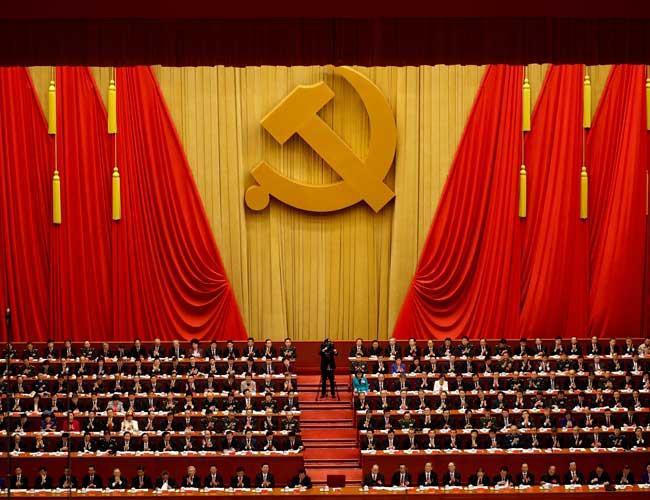China's Xi lays out vision for ‘new era’ led by ‘still stronger’ Communist Party

Chinese President Xi Jinping opened a critical Communist Party Congress yesterday with a pledge to build a "modern socialist country" for a "new era" that will be proudly Chinese and steadfastly ruled by the party but open to the world.
Xi's wide-ranging address laid out a confident vision for a more prosperous China and its place in the international community, stressing the importance of wiping out corruption and curbing industrial overcapacity, income inequality and pollution.
He made clear there were no plans for political reform, but said China's development had entered a "new era,” a phrase he used 36 times in the nearly three-and-a-half hour speech.
"With decades of hard work, socialism with Chinese characteristics has crossed the threshold into a new era," he said.
The twice-a-decade congress, a week-long, mostly closed-door conclave, will culminate with the selection of a new Politburo Standing Committee that will rule China's 1.4 billion people for the next five years, with Xi expected to consolidate his control and potentially retain power beyond 2022 when the next congress takes place.
The 64-year-old Xi, widely regarded as the most powerful Chinese leader since Mao Zedong, addressed more than 2,000 delegates in Beijing's cavernous, red-carpeted Great Hall of the People, including 91-year-old former president Jiang Zemin. Security was tight on a rainy, smoggy day in the capital.
As expected, the speech was heavy on aspiration and short on specific plans.
On the economy, Xi said China would relax market access for foreign investment, expand access to its services sector and deepen market-oriented reform of its exchange rate and financial system, while at the same time strengthening state firms.
In what was likely an indirect reference to U.S. President Donald Trump's "America first" policy, Xi promised that China would be fully engaged with the world, and reiterated pledges to tackle climate change. Trump earlier this year opted to withdraw the U.S. from the Paris climate pact.
"No country can alone address the many challenges facing mankind; no country can afford to retreat into self-isolation," Xi told the delegates, among them Buddhist monks, Olympic medalists, farmers and at least one astronaut.
Xi set bold long-term goals for China's development, envisioning it as a "basically" modernized socialist country by 2035, and a modern socialist "strong power" with leading influence on the world stage by 2050.
But he signalled there would be no significant political reforms, calling China's system the broadest, most genuine, and most effective way to safeguard the interests of the people.
"We should not just mechanically copy the political systems of other countries," he said. "We must unwaveringly uphold and improve party leadership and make the party still stronger."
Xi praised the party's successes, particularly his high-profile anti-graft campaign, which has seen more than a million officials punished and dozens of former senior officials jailed, and warned the campaign would never end as corruption was the "gravest threat" the party faces.
On self-ruled Taiwan, claimed by Beijing as its own, Xi said China would never allow the island to separate from China, and said China would strive to fully transform its armed forces into a world-class military by the mid-21st century.
He made no mention of neighbouring North Korea, which has angered Beijing with repeated nuclear and ballistic missile tests in defiance of U.N. sanctions. Pyongyang sent a congratulatory message ahead of the meeting.
The central committee of the North’s ruling Workers’ Party of Korea said that China had made “great progress in accomplishing the cause of building socialism with Chinese characteristics” under the correct guidance of the Communist Party.
“We are greatly pleased over this,” the party central committee said in the message carried by the official KCNA news agency, adding that it “sincerely wished” the China congress “satisfactory success”.
Xi has consolidated power swiftly since assuming the party leadership in 2012, locking up rivals for corruption, restructuring the military and asserting China's rising might on the world stage.
Focus at the congress will be on how Xi plans to put his expanded authority to use, and any moves that would enable Xi to stay on in a leadership capacity after his second term ends in 2022. That could include resurrecting the position of party chairman, a title that would put him on par with Mao, the founding father of modern China.
















